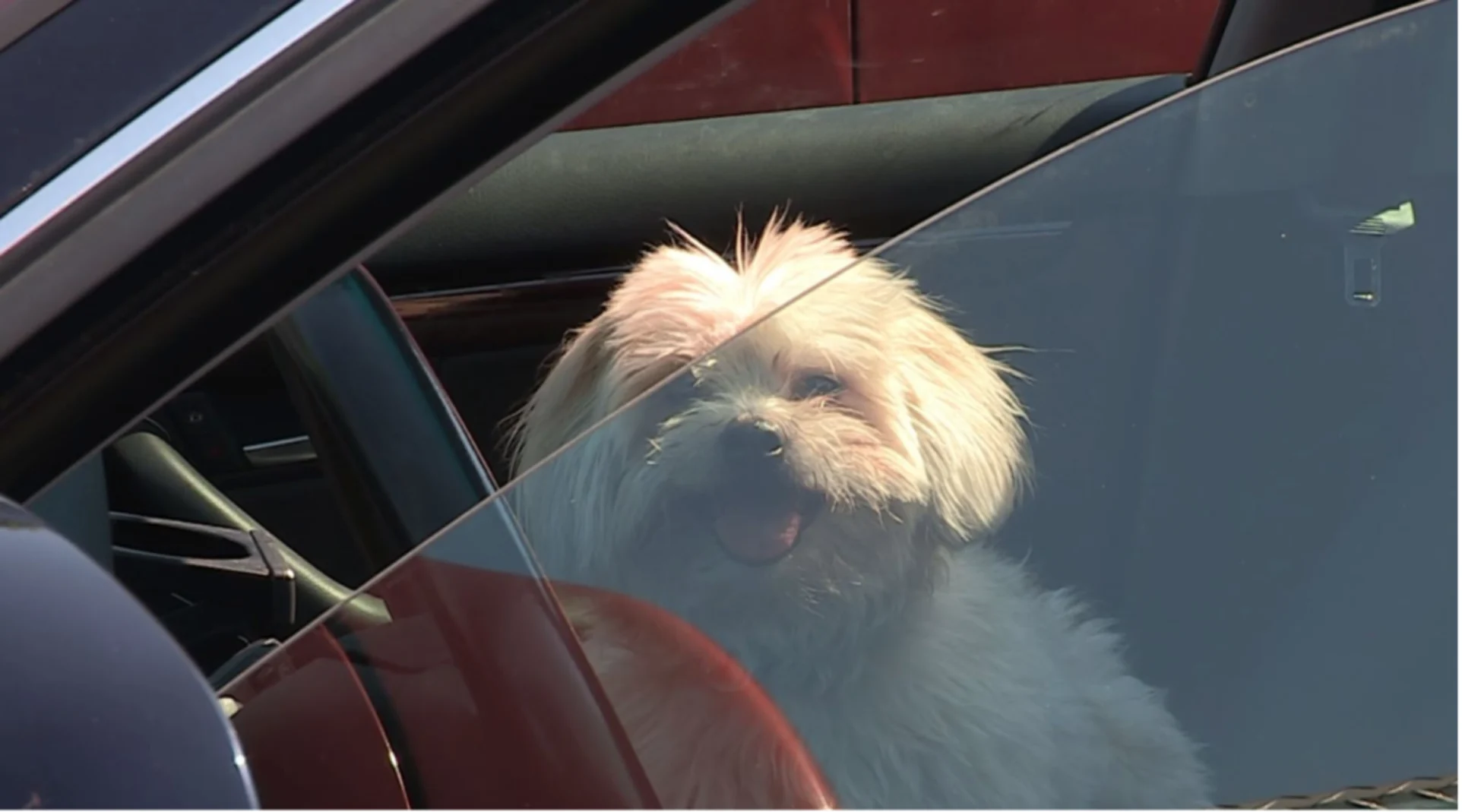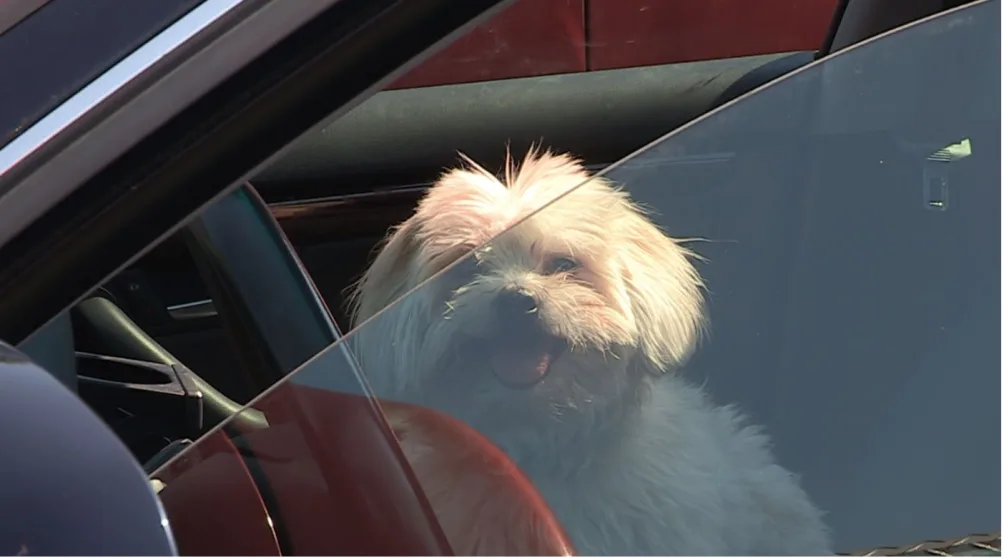
There’s a dog in a hot vehicle! What should I do?
You hear it all the time: "Don't leave pets in hot cars!" Here's what you should do if you happen to see one.
It’s an intense summer scene. Officers smashing a window in order to get an overheated animal to safety. It does not take much for a vehicle to heat to 50°C+ in the summertime. Many are surprised to know this can happen even when daytime highs are only in the mid-20s.
Even with growing awareness, Canadians are still leaving animals in hot cars. In 2019, Animal Protection Officers with the Saskatoon SPCA responded to record-breaking 194 calls. Some of their officers measured temperatures up to 60°C inside the car.
SPCAs across Canada receive hundreds of reports of pets being left in cars each year. That is why it is important to know what the proper protocol is if the owner cannot be quickly located.
Visit our Complete Guide to Summer 2024 for an in-depth look at the Summer Forecast, tips to plan for it and much more
WHAT ACTIONS TO TAKE
If you are confronted with this issue, “do not enter the vehicle,” says Sgt. Ryan Snow of Halton Regional Police Traffic Services.
This may be your first reaction, however, it is technically illegal to break into a car whether it be smashing a window or playing with the lock.
“Instead, call 911 and answer the call takers questions,” explains Snow.

(Rachel Schoutsen/The Weather Network)
SEE ALSO: This simple trick may save many kids' lives during a heat wave
Depending on where you are in Canada, the suggested number to call will vary (you can find those numbers further down in this article). Many times, police and animal welfare officers will work in unison to see who can get to the scene first.
Under no circumstance should pets be left in hot cars. Cracking windows, short periods of time, relatively mild days, leaving water, or running the air conditioner do not make a parked car a safe place for a pet to be alone.
INFORMATION YOU’LL NEED FOR THE CALL TAKER
It is important to have vital information on-hand. You should be able to confirm the following:
Exact location of vehicle
License plate information
Colour and make of vehicle
Condition of the animal
Is the vehicle in the sun or shade?
Are windows up or down?
Is there water in the vehicle for the animal?
The conversation continues each summer as to how Canadians can be better informed of the dangers. Different laws have been proposed to help create clarity in these types of situations.
For example, Ontario recently passed the PAWS ACT, which authorizes police, First Nations constables and animal welfare inspectors to enter a vehicle to relieve animals in critical distress.
Animal experts say your pet is much better off at home in a cool area with access to water if you're leaving for a short period of time.
WATCH BELOW: HERE'S HOW FAST YOUR CAR CAN HEAT UP IN SUMMER
LIST OF WHO YOU SHOULD CALL
BRITISH COLUMBIA
911 or RCMP
B.C. SPCA Animal Distress Line: 1-855-622-7722
ALBERTA
911
Alberta SPCA Animal Distress Line: 1-800-455-9003
SASKATCHEWAN
Animal Protection Services of Saskatchewan: 1-844-382-0002
Regina Humane Society (if in Regina): 306-543-6363
Saskatoon SPCA (if in Saskatoon): 306-374-7387
Calling 911 also is recommended in Regina as the police service will notify animal protection officers.
MANITOBA
Manitoba Animal Care Line: 204-945-8000 or 1-888-945-8001 (toll-free)
ONTARIO
911 or 1-833-9ANIMAL
QUEBEC
911 or the SPCA emergency line
For reports made in Montreal: 514-735-2711
NEW BRUNSWICK
911 or NBSPCA: 1 (877) 722-1522
PRINCE EDWARD ISLAND
911 or PEI Humane Society emergency line: 902-892-1191
NOVA SCOTIA
911
After police arrive, file a report with Nova Scotia SPCA: 1-888-703-7722
NEWFOUNDLAND AND LABRADOR
If in St. Johns: 1-709-729-8000
If in Labrador City: 1-709-944-7602
If in Mount Pearl: 1-709-729-8175
If in Churchill Falls: 1-709-925-3524
If in Cornerbrook: 1-709-637-4100
